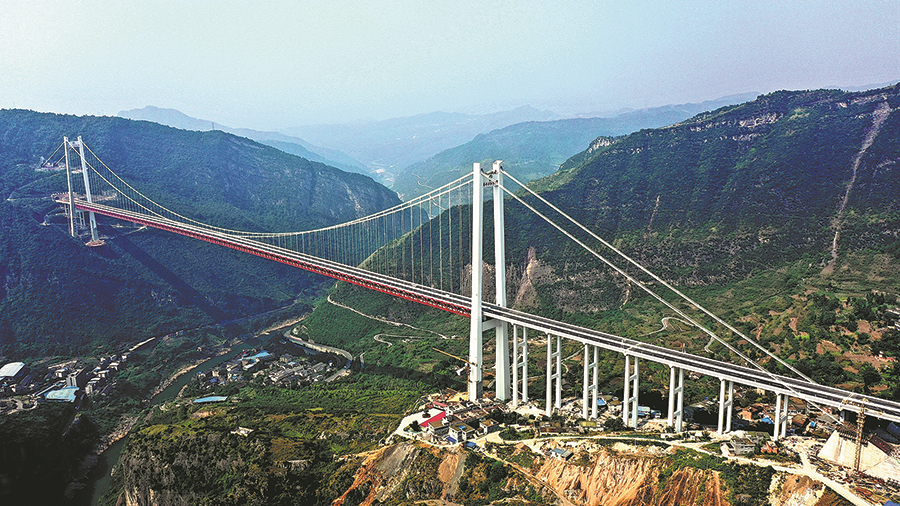Bridges help Guizhou live the high life

Hongjun bridge over the Chishui River is a part of a highway in Zunyi. [Photo provided to China Daily]
Three pledges
In 1959, when Huang became Parry chief of the village, he decided to do three things for the residents: bring water to them; build a road; and provide access to electricity.
He discovered that a nearby village had water to spare, but the problem was that a mountain lay between them. Nevertheless, he took on the task.
Initially, things did not go well. Knowing very little about water conservancy, Huang was unable to build a workable canal, so after more than 10 years the supply remained a pipe dream.
Although some people said Caowangba would never get access to water, Huang never lost hope.
At the age of 53, while he was working temporarily at the local water management station, he started studying water conservancy technology in his spare time.
After three years, he had learned a great deal about digging canals and was determined to achieve his dream. With his newfound knowledge and persistence, he obtained money from the local government, and in 1992, Huang began overseeing 200 people who helped dig the canal.
Their work paid off in 1995 when water rushed into Caowangba through a 7,200-meter-long main canal and 2,200 meters of branch canals.
With ample water now available, local people were finally able to irrigate their farmland and grow rice. Huang then helped expand the rice-cultivation area in the village to 48 hectares.
Huang was dubbed "a modern Yu Gong", after a figure in Chinese folklore who insisted on moving two mountains in front of his home to lead a more convenient life.
Mocked and questioned by his neighbors, Yu was nonetheless devoted to the task. Impressed by his efforts, the gods helped him move the mountains.
Huang did not receive help from the gods, but his persistence made the impossible possible.
























